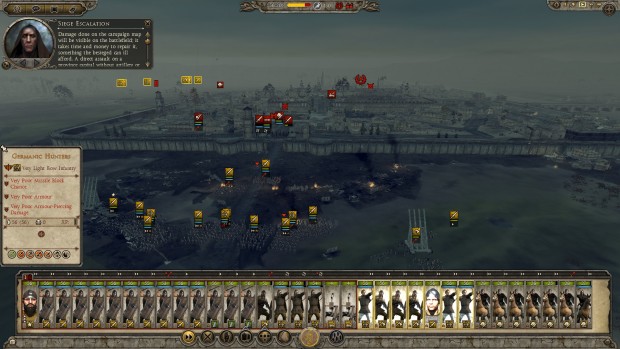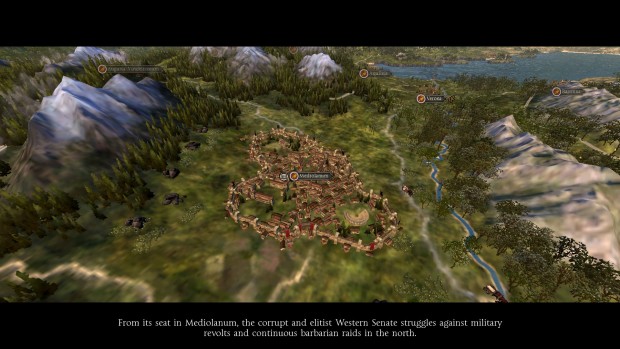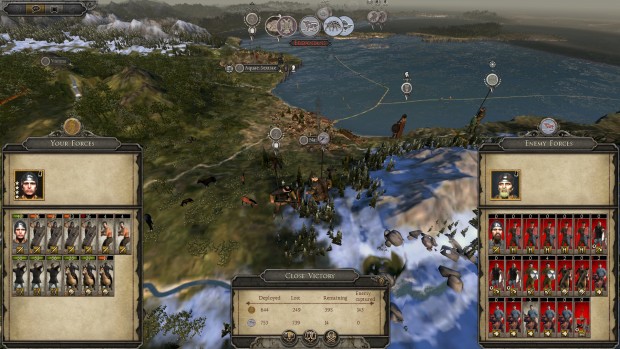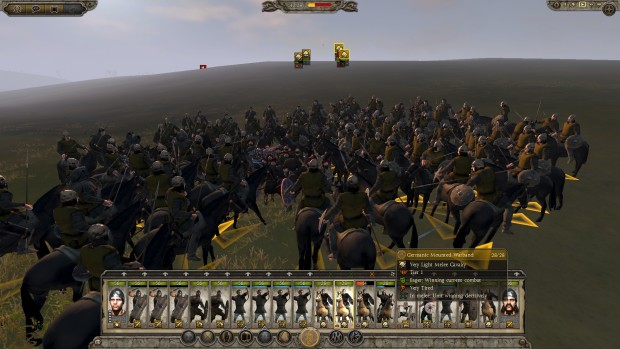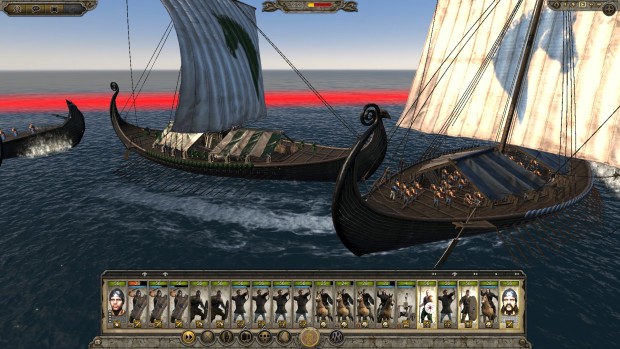I began my campaign as the Visigoths as a horde on the run. The Visigoths begin the campaign without a homeland, sitting amidst the cities of the most powerful empire in the game- the Eastern Roman Empire. Unfortunately, the Romans hate the Visigoths, and with their huge army, I was left with only one choice: haul ass. Sacking a couple poorly defended cities that lay nearby, I moved to the north and west. That was when I noticed: the AI was trying to encircle and destroy me. For the first time in a Total War single player campaign, I felt like I was fighting for my life.
Total War: Attila is an upgrade in every way from its predecessor. While Total War: Rome 2 eventually became an entirely compelling and engrossing game, it took more than a dozen patches over a period of months and months to get to that point. By then, I had given the game so many chances that I was exhausted and wanted to move on to other things. Thankfully, Attila provides a dynamic campaign, one ensconced in a fluid situation unlike any other game in the series. Attila dramatically exceeds its predecessor, both in terms of engine stability and bugs, but also in compelling gameplay and fun.
The Grand Campaign is set during the era of tribal migrations that accompanied the collapse of the Western Roman empire, circa 400 AD. There are a multitude of factions to from which to choose, spanning tribes like the Visigoths just trying to find a place to live, to the two halves of the Roman empire, battling imminent collapse, to the fearsome Huns, sacking, looting and pillaging their way across Europe. What you won’t find are any safe choices: this is a tough campaign, no matter who you play as.
Attila boasts what I think is the strongest campaign AI in the series. The AI is constantly, aggressively attacking you. I found that any time I left my armies out of position, the AI swung into the breach. I found myself playing more conservatively than I ever had before, securing my lines of communications, putting armies in key choke positions, and setting the occasional ambush when the opportunity arose. The AI rarely left weak armies in position to be snapped up, advancing when strong, retreating when weak.
I marched across Europe, and eventually settled my Visigoths in the south of Gaul, in the region of Narboensis. I had excellent interior lines, and by then, highly experienced troops. But I also found myself beset by enemies. Expansion was a difficult task, made even more difficult by the struggle within. The game has a significant faction management component. Powerful generals will gain influence and need to be appeased, less they revolt. Can’t appease them? You could assassinate them. There are a host of options for the important people in your faction, from appointing them to government posts to marrying them off. It ain’t Crusader Kings II, but it’s a great approximation, and adds a lot of color to the game.
From a tactical battle standpoint, the game is an upgraded version of Rome 2, without the host of bugs. The battles are as huge and as beautiful as ever. And, thankfully, with the upgraded campaign AI, not everything ended up as a siege or city battle. I was able to execute a number of ambushes, and had great fun hiding my troops in position to attack the enemy in march column. And, since I found myself under attack so often, I found myself in a number of desperate defensive battles with vastly inferior numbers. Even in the tactical battles, the AI felt better. When it had the advantage, it slowly marshalled its numbers, overwhelming me when it could.
Sieges feel better now than they ever have in any other game in the series. Unit pathfinding works really well now, so units move realistically through the countryside, trampling over (and destroying) some terrain, and moving around others. Villagers and townsfolk are present during battles, and in one victorious defensive combat, I saw my own non-combating start taking out the fleeing enemy. Towns can be set ablaze with fire arrows and siege weapons, allowing the towns to take damage in real time and before your very eyes. Battlefields now seems alive in a way they didn’t before.
Total War: Attila is the refreshing game the series needed after the debacle of Rome 2’s launch. I have had more fun with this game, sacking cities, fleeing for my life, and building my own little kingdom, than I have in any other Total War game in a long, long time. For longtime series fans, for those who felt that Rome 2 simply wasn’t the game they had hoped for, Total War: Attila is finally the game they deserved.
